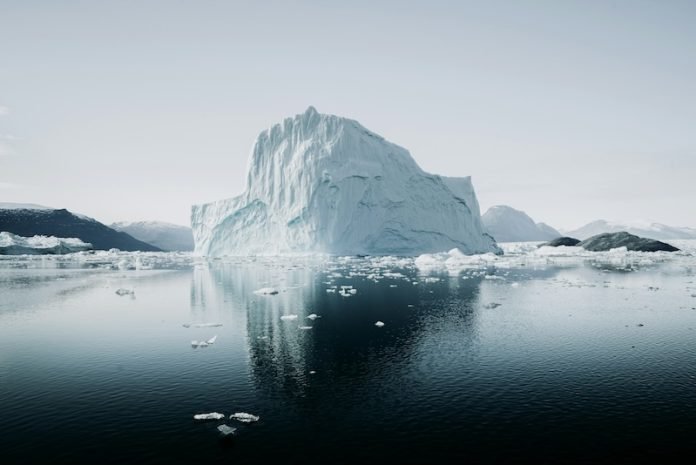
In recent years, we’ve seen a lot of concern over ice melting across the world, partly because of climate change.
Pictures of polar bears on tiny ice floes have caught everyone’s attention, showing us how serious the situation is.
When ice melts, it doesn’t just affect the animals; it changes the ocean water, harms sea life, causes flooding, and even affects the Earth’s temperature.
Researchers have been looking closely at how the ice is melting, especially in Greenland, to understand what this means for our planet.
A team led by Ryan Ing from the University of Edinburgh decided to study the ice melt in Greenland during 2022, a year when the temperatures were really high, especially towards the end of summer.
They noticed that when it gets really warm, the ice starts melting faster, especially at the end of summer. This melted ice can make glaciers slide more quickly towards the ocean, where it melts even more.
Despite seeing the ice move faster during these warm periods, the team found that it didn’t make a big difference in how much ice was moving over the whole year.
The team used satellite pictures and data from GPS and weather stations to study seven glaciers in Greenland. They found that in late summer 2022, the ice sheet saw the most melting it had since 1950 because of warm air coming from atmospheric rivers.
This caused a lot of ice to melt very quickly, overwhelming the natural drainage systems under the glaciers.
These drainage systems are like rivers under the ice. When there’s a lot of melting, these rivers can’t carry all the water away fast enough, making the glaciers slide faster.
But, as the summer goes on, these rivers get bigger and can handle more water, which slows the glaciers down again.
Interestingly, the team found that even though the ice moved faster for a short time, it didn’t have a big impact on how much ice Greenland lost over the year.
The bigger issue was the increase in water running off the ice sheet because of the melting. This runoff is a big deal because it’s a major way Greenland is losing ice.
The findings from Greenland are important because they help us understand what might happen to other ice sheets and glaciers around the world as the climate gets warmer.
Ice melting and glacier movements are complex, but studies like this help us see the bigger picture of how climate change is affecting our planet.
The research findings can be found in Geophysical Research Letters.
Copyright © 2024 Knowridge Science Report. All rights reserved.



